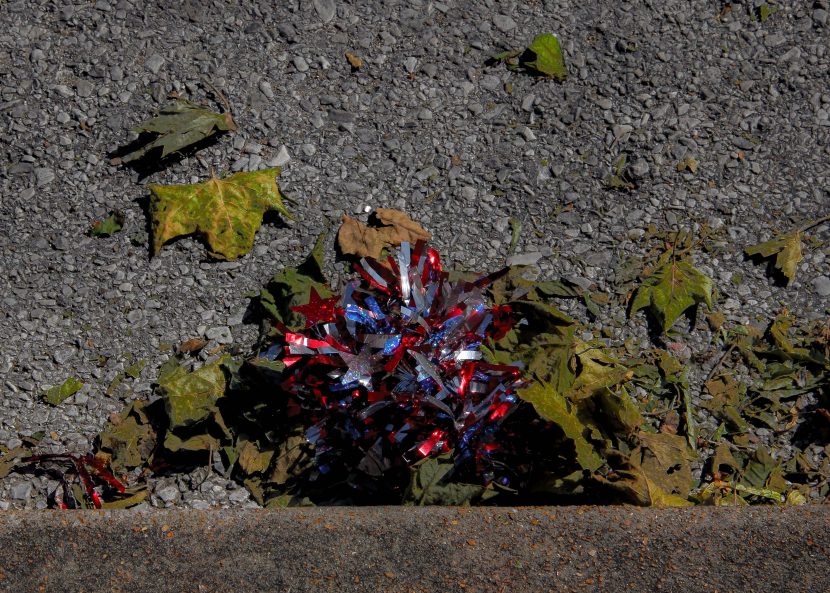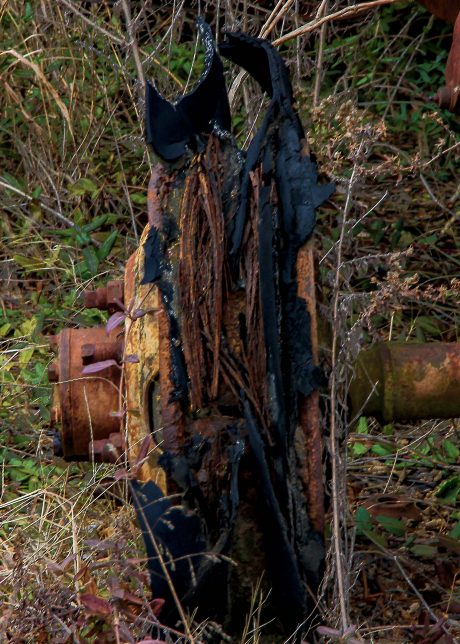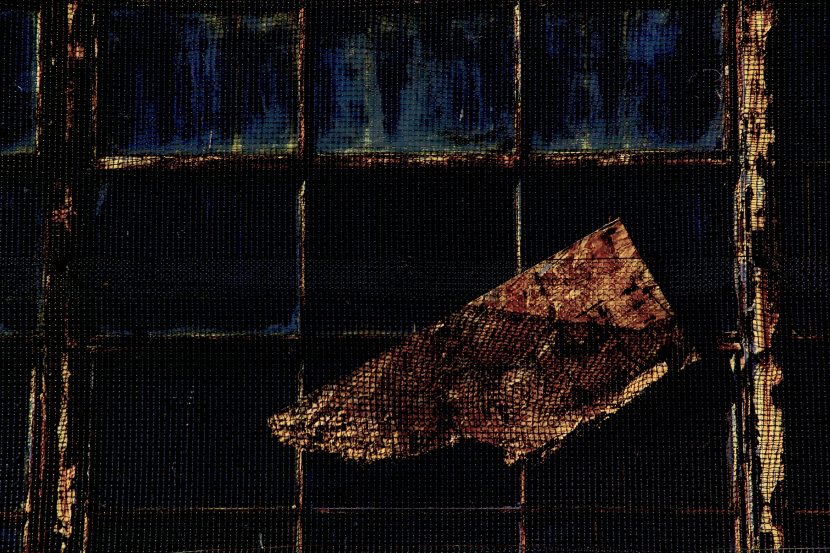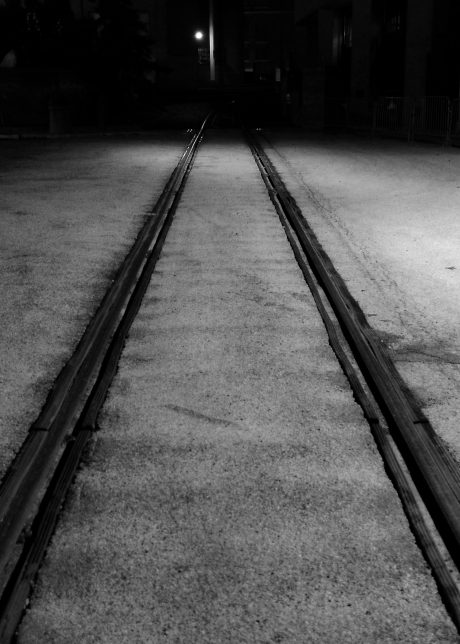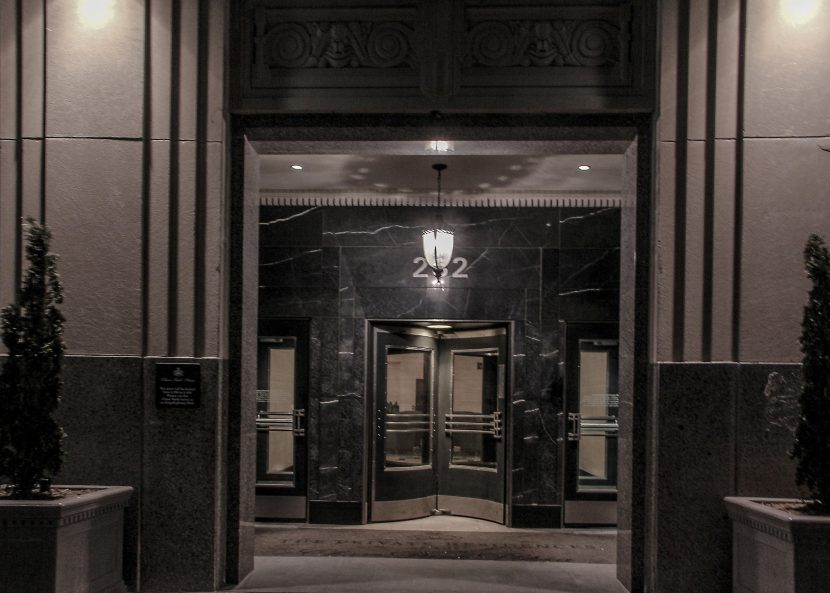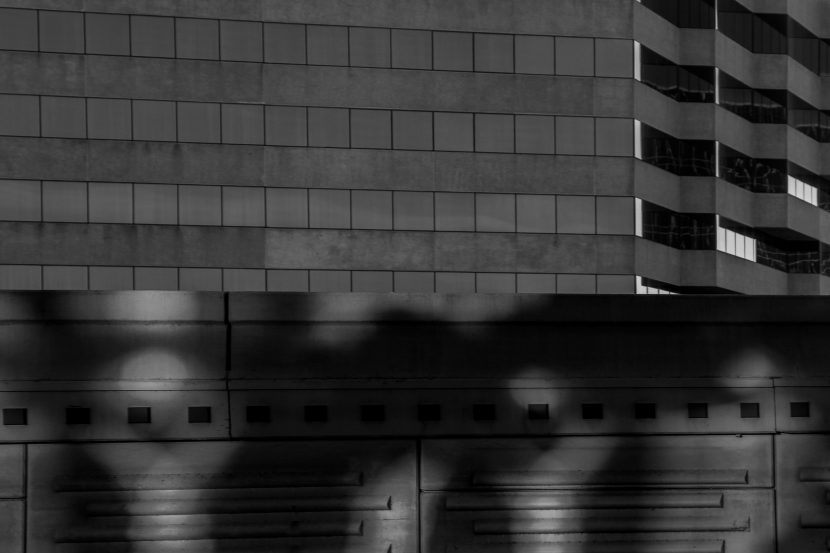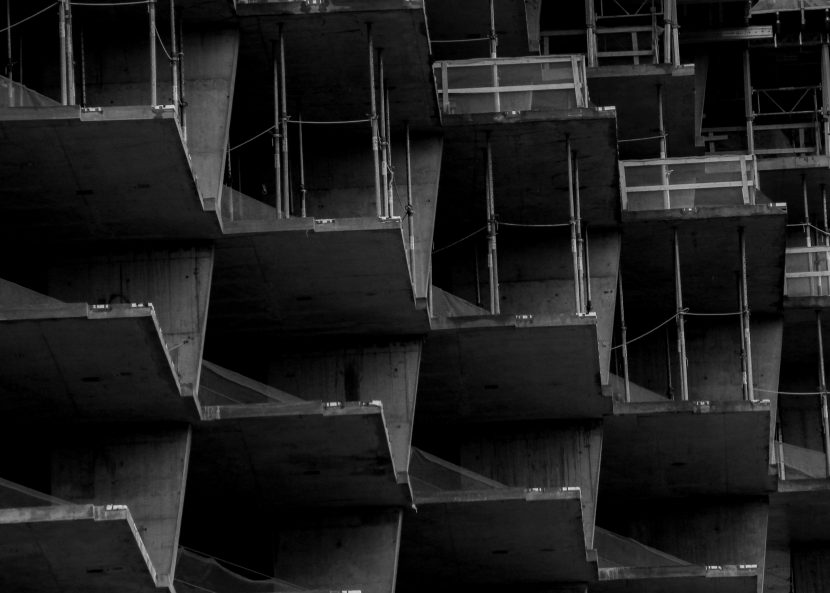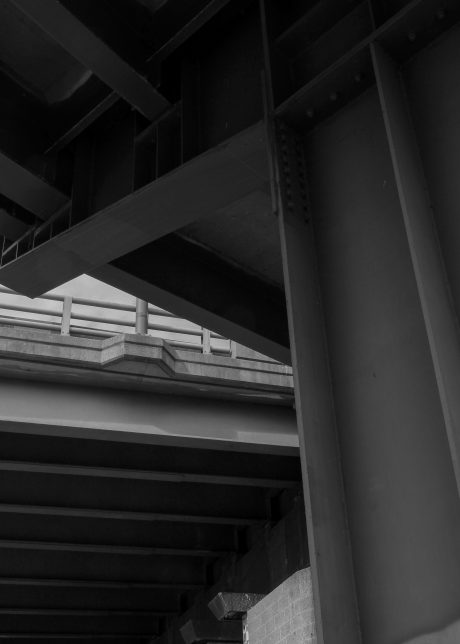I’m looking at the “protesters” in Michigan and ruminating on the nature of civil disobedience versus civic aphasia.
By that latter term I mean a condition wherein a blank space exists within the psyché where one would expect an appropriate recognition of responsible behavior ought to live. A condition which seems to allow certain people to feel empowered to simply ignore—or fail to recognize—the point at which a reflexive rejection of authority should yield to a recognition of community responsibility. That moment when the impulse to challenge, dismiss, or simply ignore what one is being told enlarges to the point of defiance and what ordinarily would be a responsible acceptance of correct behavior in the face of a public duty.
It could be about anything from recycling to voting regularly to paying taxes to obeying directives meant to protect entire populations.
Fairly basic exercises in logic should suffice to define the difference between legitimate civil disobedience and civic aphasia. Questions like: “Who does this serve?” And if the answer is anything other than the community at large, discussion should occur to determine the next step. The protesters in Michigan probably asked, if they asked at all, a related question that falls short of useful answer: “How does this serve me?” Depending on how much information they have in the first place, the answer to that question will be of limited utility, especially in cases of public health.
Another way to look at the difference is this: is the action taken to defend privilege or to extend it? And to whom?
One factor involved in the current expression of misplaced disobedience has to do with weighing consequences. The governor of the state issues a lockdown in order to stem the rate of infection, person to person. It will last a limited time. When the emergency is over (and it will be over), what rights have been lost except a presumed right to be free of any restraint on personal whim?
There is no right to be free of inconvenience. At best, we have a right to try to avoid it, diminish it, work around it. Certainly be angry at it. But there is no law, no agency, no institution that can enforce a freedom from inconvenience. For one, it could never be made universal. For another, “inconvenience” is a rather vague definition which is dependent on context.
And then there is the fact that some inconveniences simply have to be accepted and managed.
We seem to be in a time when the actions of a not insignificant number of our citizens are informed not so much by reasonable acceptance of fact but by narratives based more on X-Files story lines, the pseudo-journalistic structures of conspiracy theories, and the desire not to be seen as uninformed or out of touch. The black helicopters of secret U.N. operatives swooping in to do who knows what to stolidly independent individualists who represent threats to hidden systems run behind the scenes by Machiavellian apparatchiks have a certain attraction for the imaginations of those who have become at least partially convinced that the world is not as it seems and the “truth” is a commodity hoarded to their detriment. Some variation on these thriller-esque left-overs of the Cold War, nurtured by the same charm that appealed to the occult fascinations of alchemists in an earlier age, seem to underlay the frustrated responses to the unfolding requirements of a world that really ought not be so alien given a little actual ratiocination based on available information.
But hold on a minute. That assumption itself may be an expression of privilege. It may be relatively easy for some people to discern “reliable” information from the noise that fills our lives, but that doesn’t mean it is either simple or even the same set of metrics for everyone.
Falling down a rabbit hole is easy—sometimes easier—than following a legitimate path.
Pause. Is there judgment in that? Of course. Judgement is at the center of this whole thing. Your own and all those around you.
A simple mental (and moral) exercise. Gather a group of a 100 people in a single space. You are now told that, statistically speaking, two to four people in that gathering will die. Soon, maybe in a week. Do you have any responsibility as a result? Now add one bit: out of that gathering, two to four people are going to die because you have all gathered in that space. What now? Does that make a difference? Is there now a personal responsibility element you recognize?
Judgment is required. Judgment based on information. But first, your reaction to the basic proposition matters.
Because if you think Well, no, I have no responsibility in either situation, then quite likely new information, or better information, won’t make any difference.
Which is why we as a community assign authority for decision-making in those circumstances to a person or persons equipped to make such judgments, thereby reflecting the general will and tending to the well-being of the entire group. Because there will always be a certain percentage of any population that will go against the best interests of the group. Either out of ignorance, arrogance, ambivalence, or avarice.
We have, however, been through over seven decades of concerted efforts to undermine public confidence in the systems designed to do that job. It began with the tobacco industry deliberately paying to have the science around smoking questioned in such a way that the general public would mistrust the data enough that sales of tobacco products could continue. Combined with the growth of the corporate lobby system which made such efforts one with political advantage, other industries and interests employed the method. The result has been a society permeated with enough mistrust, doubt, and poorly-considered sense of entitlement that we are now all in danger because too few will cede authority to those who are charged with deciding matters individuals are ill-equipped to deal with.
It’s not as if there aren’t real concerns with such authority. Governments do all sorts of things inimical to individual rights and liberties and should be called on them. But we have an ecology of reaction which elevates every concern to the same level of presumed legitimacy, which makes a mockery of so-called judgment. It puts people in danger for no other reason than privileged posturing.
The question at the base of this is: who benefits?
What we are seeing are, if the images are to be believed, crowds of white people, predominately Trump supporters, many of them clearly 2nd Amendment fetishists, crowding into public spaces in camo, armed, along with cavalcades of suburbanite-ish middle class (white) people demanding an end to social distancing and lockdown orders. Among this main group are many subgroups (including some people taking advantage of the opportunity to voice their anti-semitism) who all share an apparent rejection of the state’s right to set public policy that infringes on the presumed freedoms of people to do what they want regardless of potential consequences.
Focusing for the moment on the most visible of these, the militia wannabes, their demonstration or armed resistance to a public health measure is, to put it mildly, extreme.
Unless, of course, you take into account that they are not demonstrating against public health measures, or at least not only. Reading the various signage, the aggressive body language, the evident displays of camaraderie, and the accoutrements involved, this is not a “demonstration”—as in a protest—at all, but an exercise in power optics.
Again, who does this benefit? Not, in any practical sense, the demonstrators. They’re indulging in the equivalent of a sports rally. Coming out for the home team. They have been inconvenienced, as we all have, for a reason they have decided for themselves to reject. Denial has become the hallmark of this sort of response. The automatic dismissal of “official” information followed by an assumed “principled” resistance to perceived limits on individual autonomy.
Where is the reasoned acknowledgment of extraordinary necessity that informs the responsible care of society?
And again, who benefits? And how?
The only purpose in these outbursts that makes sense is to assert privilege. It is saying, firstly, that they have no regard for authority, whether responsibly asserted or not. And secondly that one’s presumed lifestyle is more important than public safety. It is a feature of a consistent denigration of government which has been an ongoing process for decades. If it is taken as given that nothing the government says is ever the truth, this then is a consequence of that assumption. Combined with a belief that The Government is always and in every way set to strip us of our “rights” then it may even appear reasonable to reject the restrictions.
Except in this case people are getting sick, people are dying, and it isn’t just The Government saying this. At some point, reality should prompt a different response.
But reality, it seems, has been replaced. The common, consensual matrix of interactions that constitute Real Life, for some has been moved aside or coopted with a schema of conspiracy, resentment, and an assumed elevation of personal experience and political prejudice that allows for no possibility that things are other than the preferred viewpoint.
After accepting a given narrative (false one) that seems to conform to a certain set of conditions, life becomes an attempt to make that narrative true in the face of counterexample of better information. The result, after long enough, is a mindset that is triggered by anything that narrative suggests is confirmation of the most inimical aspects of that view. The Government has ordered a stay-at-home decree. Obviously, according to a certain narrative, this is overreach and a blatant attempt to isolate and incarcerate certain people. It is a targeted shut down, because certain services and businesses are deemed essential and allowed to continuye to operate. Therefore this is the first step in an authoritarian take-over and the COVID-19 pandemic is just an excuse. It may, in fact, be a made up thing. After all, no one in “my” sphere has gotten sick. And even if they do, it’s not what is claimed, but a lab-grown plague released by The Government to achieve the subjugation of the people.
The People, in this case, being those like you.
It is difficult to know where to start to unravel this. It has been nurtured and grown for decades.
The question, again, is: if that narrative is not true, then who does it benefit?
Most obviously, it benefits those who have been instrumental in constructing the narrative and then benefits those able to leverage participation in it to enhance their power and/or bottom line. In other words, those who have a stake in seeing civic authority weakened or destroyed. Those who chafe at being told no when in pursuit of goals focused almost exclusively on profit or power.
The next question, then, is: why would anyone not one of them believe that narrative and cooperate with it to their own detriment?
Obviously, they don’t believe it to be to their detriment. Counternarratives notwithstanding, there is a rejection of re-evaluation, especially if it might tear apart the operative beliefs under which such actions are taken. They feel that supporting those beliefs is worth the risk.
It has to be asked, then, given the way events have transpired: what risks?
All the risks in this false confrontation are for other people. The demonstrators themselves are in no danger, at least not from the responses any other group trying the same thing would experience. (And in this instance, those are the only risks under consideration.) This is obvious. All one need do is point out that any other group, those with perhaps more legitimate complaints whose actions might force change in the system, would have been met with considerable armed official resistance. Police, even National Guard, would have been on hand to put down the demonstration. (Which is also a good way to tell which protests have genuine weight behind them.) In this instance, demonstrators have been allowed inside public buildings with their weapons. If there has been any police presence, it has been for the demonstrators’ protection. The only reason for this absence of official discipline is that these people are, essentially, harmless. Their demands require no real change, their posturing is causing no one any real alarm, and the only people put at risk are themselves and their associates (from the very disease many of them believe to be a hoax).
This is a cynical bit of political theater, both on the part of the demonstrators and on (and for the benefit of) the part of the politicians supporting them. Those politicians believe they will benefit from the displays. This is their “base,” if you will. Treating them equally before the law would not serve their purposes.
That said, the increased transmission vectors provided by this entitled display will allow the greater spread of COVID-19 and doubtless people not directly involved in this act will suffer for it. The sponsors of all this will pay no price because they have done nothing—literally. And people, including an unknown number of demonstrators, will die. They will die because of long, drawn-out process of destroying trust in civic authority and a concomitant decay in civil responsibility, promoted and perpetrated by people who seek personal benefit from the erosion of those elements which are essential to a functioning community.
The cries to reopen the country—for business—are the hallmark of people who lack empathy. Accepting those cries as legitimate is the hallmark of people who have lost the ability to recognize legitimate authority in service to the common good. It seems not to occur to them that there are other ways to deal with what they have been told will be dire consequences. Partly, they only see one set of dire consequence—the infringement of their personal lifestyle. If “other people” die, so what?
There are fairly simple ways to see when one is being had. But those ways fail when one is at the center of a bubble lined with a mirror surface preventing any view but your own self.
What should not be overlooked here, however, is that lack of response by the authorities. That says more about the displacement of civic responsibility than the shallow bluster of these demonstrators, who after all are behaving more like spoiled children than principled citizens.

